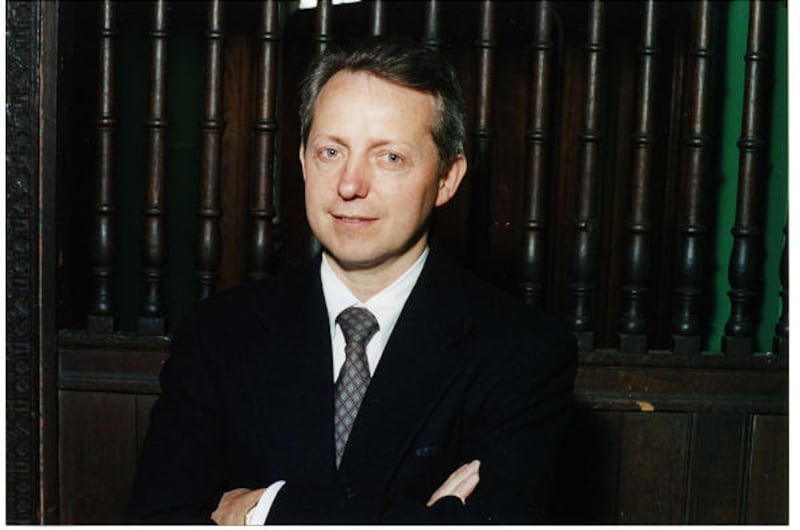OREM — The idea of a premortal existence has been prevalent among philosophers and theologians for centuries, though it never has been accepted by the bulk of Christianity, says Terryl L. Givens, who is working on a book about the subject.
Givens, a University of Richmond professor of literature and religion, spoke recently at the annual meeting of the Association for Mormon Letters at Utah Valley University. Using quotes from Darwin to Plato, Givens presented the paradoxes that members of The Church of Jesus Christ of Latter-day Saints encounter in their faith experience, as well as the history of the belief in life before birth.
"The LDS faith is the only significant Christian denomination teaching this doctrine today," said Givens. "But it turns out, literally dozens — perhaps hundreds — of poets, mystics, philosophers, theologians and pastors have taught this same principle across the centuries."
Givens said the writings of St. Augustine, Immanuel Kant and even psychotherapist Sigmund Freud lend themselves to a belief in the eternal nature of the soul, and these perspectives should be embraced, not resisted. Givens referenced the Prophet Joseph Smith, who sought specific truths from different sources, then wove them into a coherent message, an approach Givens referred to as "syncretism."
"We too often think that Joseph (Smith) started with a clean slate, repudiating the entire Christian past and starting out fresh, only teaching that which came to him direct from the heavens; but he emphatically resisted any such expression," Givens said. "His was a generous mind, unafraid to embrace truth wherever he found it and bring it home to Zion."
In most historical writings that reference a premortal state, the pre-existence served as a solution to a theological problem, Givens said. An example is the argument against the notion that men have free will.
Givens quoted John Taggart: "If God created our souls, he could have prevented all sin by creating us with better features and more favorable surroundings."
"(Taggart's) argument led him to conclude that … a human spirit rooted in an eternal pre-existence solved this dilemma," Givens said.
Joseph Smith's assertion that "intelligence, or the light of truth, was neither created nor made" is in keeping with this reasoning for a pre-earth life.
Givens also spoke about the paradoxes he has observed in the Mormon faith, a topic that was the subject of his 2007 book "People of Paradox: A History of Mormon Culture."
Givens said he believes paradoxes are something to be celebrated, not shied away from.
"I believe paradox is actually a sign of a healthy universe, veracious enough to insist on having it both ways at the same time," Givens said. "Paradox is a sign of richness and plenitude."
Givens summarized the four paradoxes he wrote about in his book, the first being the conflict between authoritarianism and individualism. He said intellectuals and artists specifically have to weigh these teachings. Each church member has to submit to an ecclesiastical authority, and yet there also exists the celebrated belief in individual moral agency and individual inspiration.
Some observers have held that there is a separation in the church, with those members who fancy individualism being at odds with those who take a more authoritative approach.
"I think the divide … is one that operates within thoughtful Mormons as much as among them," Givens said.
Secondly, there is the idea of election, where prophets take on an adversarial role against the world. The concept of election brings with it the idea that the church and its people are unique, favored and set apart from society around them. Yet, "isolation is often felt as a burden of exclusion, and is frequently transported into a quest for connections," Givens said.
"Mormons insist on a need for gospel restoration, and then feel the sting of being excluded from the bulk of Christianity they just dismissed as irredeemably apostate," Givens said.
The third paradox Givens identified was what he calls "the disintegration of sacred distance." Some see many church doctrines, such as the belief in the divine potential of souls and the idea that the family is the prototype for heavenly sociality, as the "invasion of the banal into the realm of the holy." It can be difficult to strike a balance of reverence and sacredness for the Savior of mankind when he is also considered to be "our big brother."
Givens illustrated this point with a quote from Elizabeth Barrett Browning: "Earth's crammed with heaven, and every common bush afire with God. But only he who sees, takes off his shoes — the rest sit round it and pluck blackberries."
The fourth paradox Givens identified was that of the concrete certainty Mormons proclaim to have of the church's miraculous events vs. the seeking and searching, which is an ongoing part of faith: "I fear we make too little room for those who say in the anguish of their heart not 'I know,' but 'I believe. Help thou my unbelief.' "

